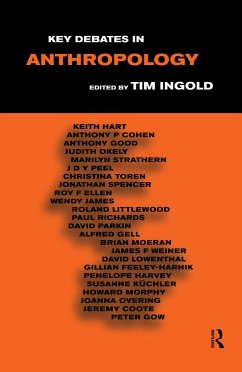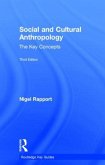Every year, leading social anthropologists meet in Manchester to debate a motion at the heart of current theoretical developments in their subject. Key Debates in Anthropology collects together the first six of these debates, spanning the period from 1988 to 1993. For each debate there are four principal speakers: one to propose the motion, another to oppose it, and two seconders. These debates give unprecedented insight into the process of anthropological theory in the making, as the many contributors both engage with each other's positions and respond to wider intellectual currents of the time. The first debate addresses the disciplinary character of social anthropology: can it be regarded as a science, and if so, is it able to establish general propositions about human culture and social life? The second examines the concept of society, in relation to such terms as individual, community, nation and state. In the third debate the spotlight is turned on the concept of culture, and on the role of culture in people's perception of their environments. The fourth debate focuses on the place of language in the formation of culture, highlighting the problematic distinction between verbal and non-verbal communication. The fifth takes up the question of how we view the past in relation to the present, touching on the difference between history and memory. Finally, in the sixth debate, the concern is with the cross-cultural applicability of the concept of aesthetics. Can there be an anthropology of aesthetics, or is the term so wedded to Western standards of evaluation as to make any such endeavour hopelessly ethnocentric?








